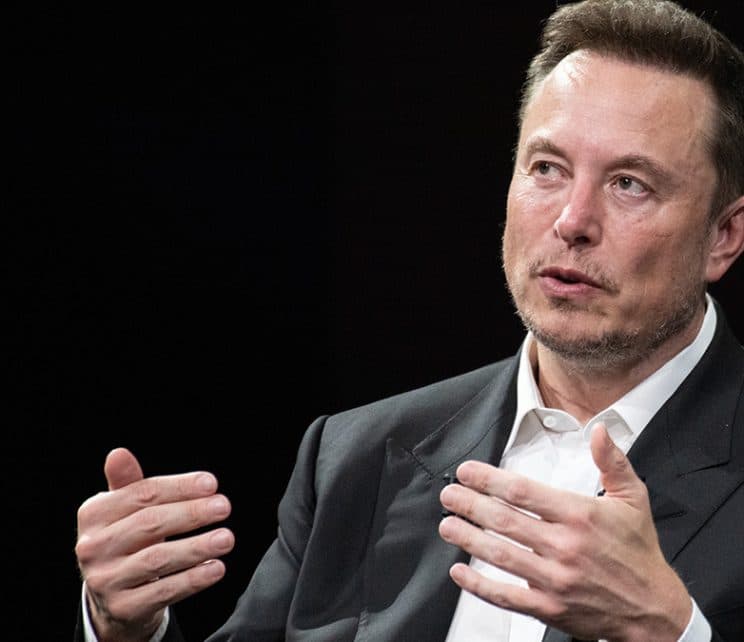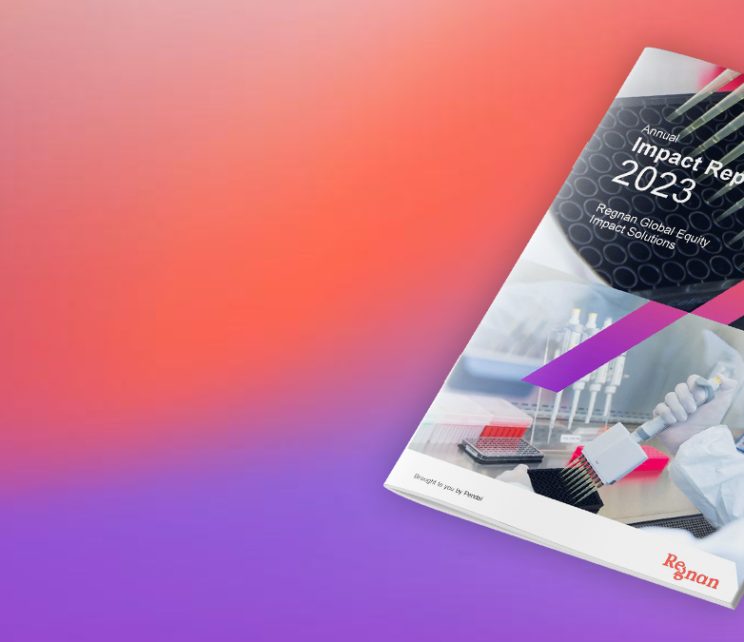
Mainstream Online Web Portal
LoginInvestors can view their accounts online via a secure web portal. After registering, you can access your account balances, periodical statements, tax statements, transaction histories and distribution statements / details.
Advisers will also have access to view their clients’ accounts online via the secure web portal.
The Point
Quick, actionable insights for investors
Responsible Investments

Sustainable investing: Five steps to avoid greenwashing
As ESG demand grows, investors are becoming more attuned to the threat of greenwashing – misrepresentation of a product’s ethical credentials.
Here are some tips from Pendal risk and compliance manager Diana Zhou and investment analyst Elise McKay:
- Dig deeper than the marketing material: Review the offer documents. A PDS should disclose the extent to which ESG practices are taken into account.
- Check up on a product issuer’s governance: Review the website for statements on responsible investing, climate change, human rights, modern slavery, stewardship as well as proxy voting.
- Understand how sustainability is integrated into the investment framework: Some managers may simply screen out investments while others conduct detailed benchmarking of a company’s ESG targets.
- Look for evidence of stewardship activity: A fund manager that genuinely cares about making a difference will be actively engaged with portfolio companies.
- Spend time with the investment team: “Go and talk to the fund manager — find out if they are really doing what they say they are doing,” says McKay.

How ASX miners are creating opportunities for sustainable investors
Quick view
How ASX miners are creating opportunities for sustainable investors
The mining sector probably doesn’t spring to mind as a source of inspiration for sustainable investors.
But companies such as Fortescue, BHP and Rio are investing billions to achieve net zero carbon emissions, creating new opportunities across the mining supply chain, says Pendal Aussie equities analyst Elise McKay.
“We visited 15 different companies across the mining supply chain in Perth last week and one of the key standouts was the extent to which there’s a huge focus on getting to zero emissions,” says Elise.
“It’s a broad generalisation, but companies that tend to be the most forward-thinking in terms of ESG are typically the ones with the biggest problems to solve.”
For example, a number of investable solutions are emerging to reduce haulage emissions — pollution from big mining trucks — at mine sites.
Caterpillar (distributed locally by Westrac, owned by ASX-listed Seven Group), is testing zero-emission mining trucks due for sale by 2027.

Pendal profile: Meet our head of credit and sustainable strategies George Bishay
Play podcastPendal profile: Meet our head of credit and sustainable strategies George Bishay
Services – particularly wages and rental inflation – have held up prices recently. But Pendal’s forward indicators show the drivers of these two factors weakening.
That means inflation in developed markets should continue to fall and central banks globally can start cutting rates, says Pendal’s head of credit George Bishay.
It’s a bullish scenario for bonds as well as credit and equity markets, he says.
But one of the risks for that scenario is a Donald Trump victory in November.
“If Trump wins the election, will he have the ability to change policy? Will he have a majority in both houses of Congress?
“If he does, that’s problematic for bonds because ultimately that’s likely to be inflationary,” says George.
The impact of a Trump presidency is more skewed towards longer-term bonds because his policies would likely have a medium-term impact on inflation, George says.
“The short end should continue to perform because central banks will be easing rates as current inflation comes down.”

Regnan: Navigating climate strategy amid regulatory turbulence
Quick view
Regnan: Navigating climate strategy amid regulatory turbulence

Regnan: What to watch out for when investing in founder-led companies
Quick view
Regnan: What to watch out for when investing in founder-led companies

ESG: How the world’s most innovative companies are using AI to drive sustainable outcomes
Quick view
ESG: How the world’s most innovative companies are using AI to drive sustainable outcomes

Regnan: Make sure your sustainable investments manager is a good ‘engager’
It’s no surprise that corporate engagement and shareholder action have become one of the most common responsible investment approaches in Australia.
Engagement generally refers to the process of active asset managers “engaging” directly with investee companies and bond issuers to influence corporate behaviour and achieve better outcomes for investors and the community.
More than half of investment managers in our region now have stewardship codes (which generally include an engagement component), according to the Responsible Investment Association of Australasia.
Engagement is a critical component of the investment process for sustainable investor Regnan – and senior analyst Laura Sheehan sees it as an essential tool.
“We need to be able to identify companies that are willing to engage with us,” she says.
Engagement is a two-way relationship, and the key is to have a deep understanding of the business and the industry in which the company operates.
“If you’re asking for things that aren’t realistic, or show you don’t understand the business, that’s going to impact your influence and the willingness of management to engage more broadly.”
Laura explains more here

Debunking a myth about fossil fuels and sustainable fixed interest
Play podcastDebunking a myth about fossil fuels and sustainable fixed interest
High fossil fuel prices can understandably discourage investors from allocating to sustainable strategies.
Sustainable portfolios generally exclude exposure to fossil fuels, which may mean underperformance when oil prices rise, for example.
But that’s not necessarily the case across all asset classes, says Pendal’s head of credit and sustainable strategies, George Bishay.
“There’s a perception that all asset classes face these potential performance risks when prioritising sustainability.
“But Australian sustainable fixed-income exhibits minimal sensitivity to oil markets or any other screened activities,” writes George in a new Pendal paper.
Fossil fuel companies typically make up a large part of equities indices (about 15 per cent of the ASX300 in July 2024).
But issuers involved in fossil fuel extraction, exploration or refining are a small component of the Australian fixed-income benchmark.
“This differentiation allows investors to integrate sustainable fixed income into their overall core fixed-interest allocation with minimal additional benchmark risk,” says George.
“By incorporating Australian sustainable fixed income alongside other traditional assets, investors can achieve a robust portfolio while also supporting climate stability or the underserved in society.”

Fixed income: the likely impact of rates, inflation and a Trump presidency
Play podcastFixed income: the likely impact of rates, inflation and a Trump presidency
Services – particularly wages and rental inflation – have held up prices recently. But Pendal’s forward indicators show the drivers of these two factors weakening.
That means inflation in developed markets should continue to fall and central banks globally can start cutting rates, says Pendal’s head of credit George Bishay.
It’s a bullish scenario for bonds as well as credit and equity markets, he says.
But one of the risks for that scenario is a Donald Trump victory in November.
“If Trump wins the election, will he have the ability to change policy? Will he have a majority in both houses of Congress?
“If he does, that’s problematic for bonds because ultimately that’s likely to be inflationary,” says George.
The impact of a Trump presidency is more skewed towards longer-term bonds because his policies would likely have a medium-term impact on inflation, George says.
“The short end should continue to perform because central banks will be easing rates as current inflation comes down.”

Global equities: where to hunt for smalls and midcaps
Quick view
Global equities: where to hunt for smalls and midcaps
“Now is the time for small and mid-caps to shine”, says Regnan portfolio manager Tim Crockford.
“Particularly in Europe, relative valuations have reached depressed levels that are not reflective of the underlying relative fundamentals,” says Tim, who leads Regnan’s global equities impact investing team.
“In terms of developed markets, Europe and Japan offer opportunities. In terms of emerging markets, it’s places like Indonesia and Brazil,” Tim says.
Focus on companies that are likely to grow over the next 12 months – or where the valuation is so depressed it’s priced for a highly negative drop in growth in 2024, he argues.
“Look for companies that are able to generate organic cash flows to fund at least part of their growth.
“And the remainder of the funding needs to be covered by debt that isn’t going to burden, or reverse, the positive effects of potential future cash flow growth.”

Impact investing: How GLP-1 drugs could affect sectors outside healthcare
Quick view
Impact investing: How GLP-1 drugs could affect sectors outside healthcare
GLP-1 medication – best known in drugs such as Ozempic and Wegovy – could have impact far beyond the treatment of diabetes and obesity.
That’s the view of Maxime Le Floch, an analyst with Regnan’s impact investment team, who has been reviewing recent studies.
Regnan invests in Novo Nordisk, one of the two dominant GLP-1 drug makers along with Eli Lilly.
Demand for GLP-1 is already outstripping supply – and potential health benefits uncovered in recent studies could drive demand higher.
Results from a recent study on cardiovascular risk using Novo Nordisk’s GLP-1 were “far better than expected,” says Maxime. Another trial on chronic kidney disease was stopped early because of the success of GLP-1.
And there is now evidence that the use of GLP-1 weight-loss drugs may be affecting sales of certain food categories.

This innovator has an answer to a big AI problem
Quick view
This innovator has an answer to a big AI problem
Nvidia’s stock price is soaring – and so are the carbon emissions caused by all the processors the chipmaker is churning out for power-hungry AI developers.
German-listed Aixtron, which supplies technology that helps the manufacture of computer chips, is at the forefront of trying to solve this problem.
“Artificial intelligence doesn’t exist in the ether – its computing power requires a vast infrastructure of data centres,” says Maxime Le Floch, an analyst with Regnan Global Equity Impact Solutions fund .
“One of the technologies that can help solve this issue is the use of compound semiconductors like gallium nitride, where Aixtron is a market leader.”
Gallium nitride can reduce the energy consumption of a data centre by 20 per cent, leading to a 10 per cent reduction in data centre operating expenditure, says Le Floch.
“Companies that can provide compelling solutions for these kinds of problems typically experience very strong growth and long term, compounding earnings.”
Loading posts...
Loading posts...














